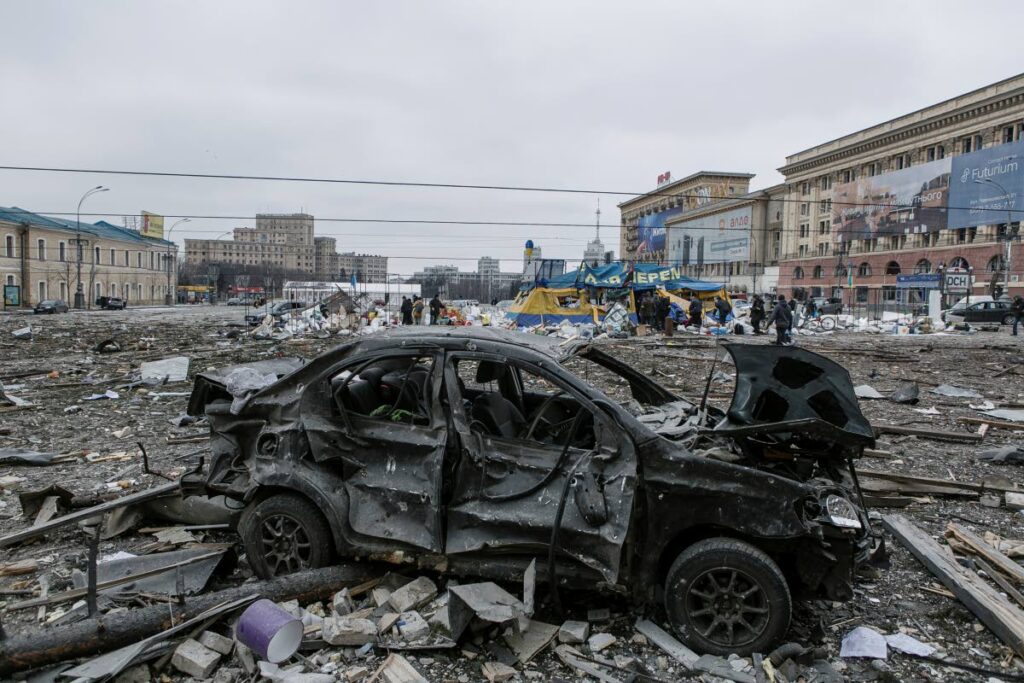Experts: Caricom co-operation needed to mitigate fallout from Russia-Ukraine war

A PANEL of international relations experts have called for Caribbean leaders to act swiftly and co-operate to mitigate against the fallout from the Russia-Ukraine war.
On Monday, the Elma Francois Institute for Research and Debate at the Cipriani College of Labour and Co-operative Studies held a webinar titled Russia-Ukraine Crisis: A Critical Analysis.
The speakers included former directors at the institute of international relations at UWI Dr Raymond Kirton and Dr Anthony Gonzales and lecturer at the Institute of International Relations at UWI Dr Jacqueline Laguardia-Martinez.
In the immediate to medium term, the panel said food security should become a priority, since Caricom was still feeling the impacts of the covid19 pandemic. Kirton said while there has been a level of fragmentation within Caricom, there must be an organised and unambiguous approach to the potential negative effects on the region.
“In the first instance we can see a rise the price of oil and petroleum and its related products, which will have implications for economies already reeling under the impact of the covid19 pandemic.
“There is also the question of the supply-chain issue and rising freight costs. It will impact imports to the region and maybe availability.”
Kirton said currently there were opportunities to move the process forward to ensure collaborative engagement in areas such as acquiring imports, intra-regional trade, increased agricultural exports and reducing the import bill.
He said, “Access to food and food that is affordable is critical. There are short- and medium-term impacts which must be addressed by the region.”
Laguardia-Martinez added that the sanctions will be a high price to pay for the region because of its vulnerabilities as small island developing states.
“The price of food, the price of wheat, the price of oil – in this case, vegetable oil, as Ukraine is one of the largest producers of sunflower oil in the world – among many other agricultural products, will be impacted.
“We are going to feel a diminishing supply of food for the region and the world,” she said.
Gonzales added that TT's economy, which was largely dependent on the oil and gas industry, can benefit from the Russia-Ukraine war, but this was dependent on the commodities' output.
“We are going to get some better prices for the oil that we export. Our problem is production, and if we could get 80,000 barrels per day and sell that internationally, we would get good prices.
“Our mainstay is gas. But our problem here is that our gas production has not been increasing significantly.
"The rest of the region will have some problems. Energy prices affect travel, and that is going to feed into goods and services, tourism and transportation,” he explained.
On Monday the price of Brent crude oil was US$97.93, WTI crude oil was US$91.59 and natural gas was US$4.47 MMBtu.
When it came to the security of the region, Gonzales said Russia’s influence was dormant at this point but could become active if restrictions on Russia intensified.
Right now, he explained there was a certain type of tolerance of Russian and Chinese presence in this part of the world, such as minor military equipment and personnel, and they would not bring nuclear weapons or missiles.
He said, “If an intense cold war comes about and Russia is being cut off from strategic advantage such as markets, raw materials or project power to any part of the world, I think there we may see the rules of the game may change somewhat.
“What we may see is that the Americans and the West beginning to come down on Russia, who has a presence in certain parts of the hemisphere and begin to intensify a campaign to try to get them out of Venezuela, Nicaragua and Cuba to some extent.”
The panel said the current migration of Venezuelans to TT required proper management but did not foresee increased movement because of the current crisis.
Kirton said, “The issue needs to be looked to ensure that there is a standardisation across the region which will not negatively impact the potential migrant, but strongly managed and controlled.”

Comments
"Experts: Caricom co-operation needed to mitigate fallout from Russia-Ukraine war"